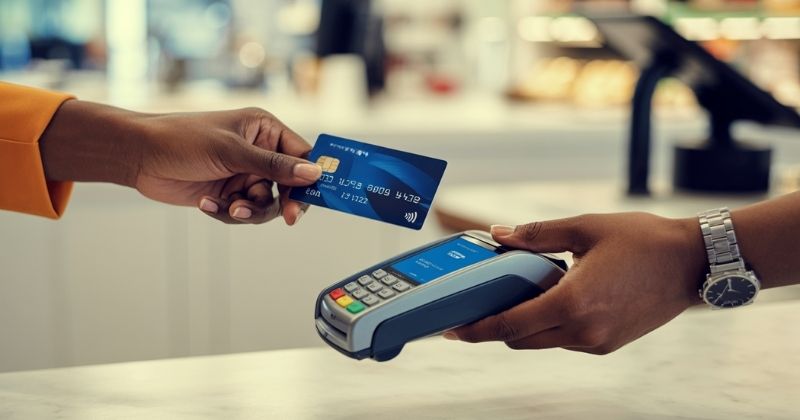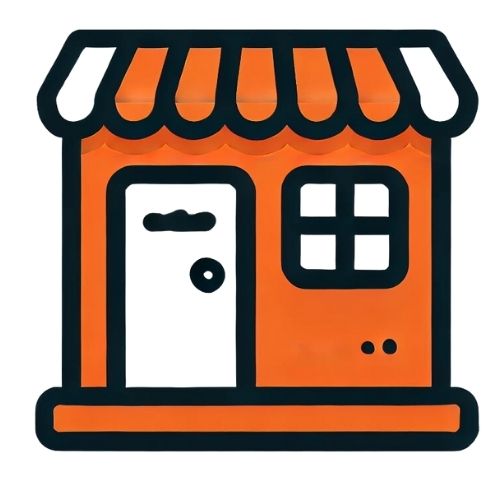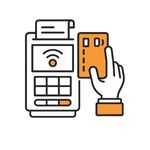
Credit cards are widely used in South Africa for everyday purchases, online shopping, and travel expenses. They offer a convenient way to manage spending by providing access to a pre-approved credit limit, which allows you to buy now and pay later. When used responsibly, credit cards can help build a positive credit history, making it easier to qualify for loans and other financial products in the future. However, it’s essential to understand how credit cards work, including interest rates, fees, and repayment terms, to avoid falling into debt.
Key Takeaways
- Nature of Credit Cards: Unlike debit cards, credit cards allow users to borrow funds up to a set limit, to be repaid later
- Economic Significance: Credit cards play a pivotal role in today’s economies, enhancing purchasing power and facilitating global transactions.
- Billing Cycles: Understanding the billing cycle is essential for managing repayments and avoiding unnecessary interest.
- Interest Rates and APR: APR (Annual Percentage Rate) encapsulates the yearly cost of borrowing on a credit card. It’s crucial to understand APR to manage costs effectively.
About Arcadia Finance
Easily secure your loan through Arcadia Finance. The application is free, and you have a choice of 19 respected lenders, all operating under the guidelines of South Africa’s National Credit Regulator.
What Is a Credit Card?
A credit card can be a practical way to handle short-term expenses and gives you the option to spread out the cost of larger payments. It allows you to use an approved credit limit, which is a set amount of money made available to you by the bank, provided your account is not in arrears and remains within the agreed conditions.
You can spend up to this limit, and then you’re expected to repay what you’ve used either in full or by paying a minimum amount every month. If you only pay the minimum required, interest will be added to the balance you still owe, which means the total cost of your debt will increase over time.
Components of a Credit Card
When you hold a credit card, you’re not just holding a piece of plastic; you’re holding a tool meticulously designed for security, convenience, and functionality. Each component serves a unique purpose:
- The Card Number: Usually a 16-digit number, it’s unique to the card and is the primary identifier.
- Expiration Date: Just like any product, credit cards have a shelf life. This date signifies when your card will expire, post which a renewal is needed.
- CVV (Card Verification Value): A 3-digit number on the back, provides an extra layer of security, especially for online transactions.
- Security Chip: Modern credit cards come equipped with a small chip that provides enhanced security against fraud by encrypting information.
These components ensure that your transactions are not only smooth but also secure. The technological strides made in the design and functionality of credit cards showcase the financial sector’s commitment to user safety and ease of access.

Types of Credit Cards
Understanding the different types of credit cards available in South Africa can help you choose the most suitable option based on your needs, financial situation, and credit history. Below is a breakdown of the main categories:

Major Credit Cards
Major credit cards, such as Visa, Mastercard, American Express, and Discovery, are issued by authorised banks, credit unions, or financial institutions. These cards can be used nationwide and internationally, depending on the network and the specific card features.
Some major credit cards come with reward programmes, offering benefits like cashback on qualifying purchases, travel discounts, gift vouchers, and more. These rewards are usually tied to how much you spend with the card. However, it is wise not to apply for a card just to earn rewards, since you are still liable to pay interest on any outstanding balance. Failing to repay on time may cancel out the value of the rewards you’ve earned.

Store Credit Cards
Store credit cards are issued by retail brands or chains and are usually easier to qualify for than traditional bank-issued credit cards. This makes them a popular choice for individuals with limited or no credit history.
These cards are brand-specific, meaning you can only use them at the issuing store or retailer. In return, you may receive exclusive discounts, special promotions, or early access to sales events. Although convenient for regular shoppers at that retailer, store cards often have higher interest rates and limited use outside the store network.

Secured Credit Cards
A secured credit card requires a security deposit, which acts as a form of guarantee for the credit provider. The credit limit on the card is usually equal to the amount of the deposit. For example, if you deposit R2 000, your available credit may also be R2 000.
This type of card is mainly aimed at those who need to build or improve their credit profile. Over time, if you maintain good repayment habits, the lender may return the deposit and even increase your credit limit. Secured cards offer a controlled way to access credit and are a stepping stone towards qualifying for standard credit cards.

Student Credit Cards
Student credit cards are designed specifically for individuals enrolled in tertiary education institutions. These cards help students manage expenses such as textbooks, stationery, food, transport, or basic living costs while also helping them start building a credit history.
Student cards usually have lower credit limits, reduced fees, and fewer reward features compared to other credit cards. However, they are often easier to access if you are a registered student and can provide proof of enrolment or some form of income.

Business Credit Cards
Business credit cards are tailored for companies, small business owners, and professionals. These cards make it easier to track business expenses, separate personal and business finances, and manage employee spending.
They may come with higher credit limits, spending reports, online account management tools, and additional cards for employees. Depending on the provider, business cards may also offer cashback on business-related purchases, travel perks, or insurance benefits.
Credit Card vs. Debit Card: Know the Difference
Usually, the terms ‘credit card’ and ‘debit card’ are used interchangeably, but the differences between them are stark. While both might look similar, they serve different functions. A debit card is directly linked to a bank account. Every time you use it, funds are instantly taken from your account. Think of it as an electronic cheque – you can’t spend more than you have in your bank.
On the other hand, a credit card offers you a line of credit. When you use it, you’re borrowing money up to a pre-defined limit, which you’ll need to repay, usually every month. While you do have the liberty to spend now and pay later, this comes with interest rates and potential fees if not managed correctly. In essence, with a debit card, you spend your money, but with a credit card, you spend the bank’s money with a promise (and obligation) to pay back.
If you’re trying to make sense of South Africa’s banking options, the TymeBank Credit Card Review offers a fresh take on what digital-first banking really means: no fuss, no queues, just smart credit solutions.

The Mechanics of Credit Cards
Delving deeper into the world of credit cards, it becomes clear that there’s a complex system at work beneath the surface. This system, with all its checks and balances, ensures that the process of borrowing, spending, and repaying works seamlessly.
The Role of Credit Card Issuers and Networks
While it’s easy to think that the bank is the sole entity involved in your credit card transactions, there’s another silent player: the credit card network. Brands like Visa, Mastercard, and American Express are not the ones lending you money; they facilitate the transaction process. They act as the middlemen between the merchant and the credit card issuer, which is usually the bank. The bank is the entity providing you with the credit. They decide your credit limit, interest rates, and other fees. The network ensures that when you swipe or dip your card, the transaction gets approved, and the merchant gets paid.
How Credit Limit is Determined
Your credit card isn’t a bottomless pit of money. There’s a ceiling to how much you can spend, known as the credit limit. Determining this limit isn’t arbitrary. Factors come into play:
- Credit History: If you’ve borrowed before and repaid diligently, you’re more likely to get a higher limit.
- Income: Your earnings play a significant role. Usually, higher earners may get a higher credit limit.
- Existing Debts: If you’re already in significant debt, banks might be hesitant to offer a high limit.
Being aware of these factors doesn’t just help in understanding your current credit limit but can also aid those looking to increase it in the future.
Credit cards play a significant role during Black Friday shopping sprees. Read The Black Friday Rush: Where South Africans Spent Their Money to understand how savvy South Africans made the most of their cards while avoiding overspending.
The Billing Cycle Explained
Simply put, this is the period between two consecutive statements from the credit card company. Here’s a snapshot of how it works:
- Start and End Dates: Each billing cycle has specific start and end dates. All the purchases you make within this period will appear in your upcoming statement.
- Statement Date: At the end of the billing cycle, the credit card issuer compiles a statement listing all transactions, the total amount due, and the minimum amount payable.
- Grace Period: Here’s a perk many aren’t aware of. Post the statement date, there’s a window (usually 21-25 days) where you can pay off your balance without incurring interest. It’s a short but sweet period that rewards prompt payers.
Interest Rates and Annual Percentage Rate (APR)
APR is the yearly cost of borrowing on your credit card if you don’t pay off the full balance each month. It encompasses both the interest rate and additional fees.
- Calculation: To determine how much interest you’ll pay in a month, divide your APR by 12 (months). Then, multiply this monthly rate by your average daily balance during the billing cycle.
- Variable vs. Fixed APR: While a fixed APR remains constant, a variable APR can fluctuate based on the benchmark interest rate or the prime rate in the financial market.
Being savvy about these rates ensures that you can make informed decisions and optimise the way you use your credit card.
» More: Curious about a positive balance on your credit card?

Advantages of Using a Credit Card
Credit cards have emerged as a favourite for many, and not without reason. These cards, if used wisely, can be powerful allies.

Cashless Transactions
The digital age has cast a spotlight on convenience, and credit cards embody this ideal. No need for bulky wallets or exact change; with a credit card, transactions are smooth and instantaneous. It’s not just about physical shopping; the online realm opens up with credit cards, allowing users to explore and benefit from global marketplaces.
Credit cards also enable the use of contactless wallet services like Apple Pay and Google Pay which use devices such as mobile phones to facilitate the payment to merchants without the need for a physical card.

Earning Rewards and Points
Loyalty has its rewards. Many credit card issuers offer reward programs where you accumulate points for every rand spent. Over time, these points can be redeemed for a myriad of benefits – from flight tickets to cashback offers. In a sense, you’re getting rewarded for spending!

Credit Building Opportunities
A credit card is more than a spending tool; it’s a credit-building instrument. Regular usage, combined with timely repayments, paints a picture of a responsible borrower. This positively impacts your credit score, making future borrowing easier and potentially at better rates.

Emergency Funding and Flexibility
Life is unpredictable. Unexpected expenses, be it medical emergencies or sudden travel, can arise. Here, credit cards shine as they provide an immediate financial cushion. Plus, with features like EMI (Equated Monthly Instalments), significant expenses can be spread over months, easing the financial burden.
Precautions and Responsible Use
While credit cards are undeniably potent financial tools, wielding them demands a certain level of responsibility. Just as a craftsman respects their tools, a credit card user must understand the card’s power and potential pitfalls.
Avoiding the Minimum Payment Trap
It’s tempting, isn’t it? When the statement rolls in, there’s that alluring option to pay just a minimum amount, rather than the full balance. But here lies a well-hidden trap. By choosing to pay only the minimum, you’re allowing the remaining balance to accumulate interest. Over time, this can spiral into a daunting debt. Clear as much of the statement balance as you can each month to dodge this pitfall.
Steering Clear of Late Payments
Beyond incurring penalties, late payments can stain your credit history. Such blemishes can be hurdles when you seek loans or other financial products in the future. To avoid this, set reminders or automate your payments to ensure they’re made on time.
Monitoring for Fraudulent Activities
Regularly monitoring your credit card statements for unfamiliar transactions is more than a good habit; it’s a necessity. Should you spot any discrepancies, report them immediately to your card issuer.
Understanding Your Credit Utilisation Ratio
A lesser-known but significant term, the Credit Utilisation Ratio is the percentage of available credit you’re using. For instance, if you have a credit limit of R10 000 and you’ve used R5 000, your ratio is 50%. As a rule of thumb, maintaining this ratio below 30% is advisable as higher ratios can negatively impact your credit score.
» Discover: How to successfully cancel credit card payments.

How To Qualify For A Credit Card In South Africa
To be eligible for a credit card in South Africa, individuals must meet a few key requirements set by the issuing bank. These requirements usually include having a regular source of income and a strong credit record. Banks also look into your current financial obligations to confirm that you can handle additional credit without risk. This helps them determine whether you are likely to repay your credit card debt on time.
To qualify for a credit card, you generally need to:
- Be 18 years of age or older
- Hold a valid South African identity document or passport
- Provide proof of income, usually with payslips or bank statements. Many banks expect a minimum monthly income of around R3 500, although this can vary
- Have a good credit score and a clean credit history, showing that you have managed past accounts well
- Pass the bank’s affordability checks, which include an assessment of your existing debt, monthly expenses, and financial commitments
These requirements help the bank decide whether to offer you a credit facility, and if so, how much credit they are willing to make available.
How to Apply for a Credit Card in South Africa
Venturing into the world of credit cards for the first time can be both exciting and daunting. However, the process can be seamless with the right guidance.
| Steps | Details |
|---|---|
| 1. Assessing Your Needs | Before diving in, introspect. Are you looking for a card that offers great rewards? Or perhaps one with low interest rates? Understanding your spending habits and needs can guide you toward the perfect card. |
| 2. Research: Comparing Different Offerings | South Africa is home to a plethora of credit card offerings from different banks and institutions. Delve deep, and compare features, interest rates, fees, and rewards. Platforms dedicated to comparing financial products can be invaluable here. |
| 3. The Application Process | Once you’ve zeroed in on a card, the formalities begin. Usually, the process involves: • Filling out an application form (online or offline) • Providing proof of income and employment • Credit checks by the issuer |
| 4. Approval or Denial | Post-application, the credit card issuer will assess your application based on your creditworthiness and other criteria. If approved, you’ll soon have your credit card. If denied, it’s essential to understand the reasons, as this can guide future applications. |
Best Credit Cards in South Africa
| Credit Card | Interest-Free Period | Rewards Programme | Travel Benefits | Unique Features |
|---|---|---|---|---|
| Capitec | Up to 55 days | Earn interest on positive balance | Travel insurance on ticket purchases | No currency conversion fees, free local/international swipes |
| FNB | Up to 55 days | eBucks (fuel, groceries, travel) | Travel insurance, concierge (premium) | Tiered rewards, premium support |
| Nedbank | Up to 55 days | Greenbacks (cash, fuel, gifts) | Cashback, discounts on flights, lounge access | Monthly Avo vouchers, up to 10% tech discounts |
| Absa | Up to 57 days | Absa Rewards (airtime, fuel, shopping) | Airport lounge access, basic travel insurance | No purchase transaction fees |
| Standard Bank | Up to 55 days | UCount (groceries, fuel, flights) | Lounge access, travel insurance, car hire discounts | Discounts on coffee, wine, olive oils, car rental |
| Discovery | Up to 55 days | Vitality (retail, travel, lifestyle) | Insurance, lounge access (local & global) | Reduced interest rates for healthy living |
| Woolworths | Up to 55 days | WRewards (Woolworths products) | Travel insurance, free delivery (Woolies app) | Free hot drinks in store, exclusive deals |
| Investec | Up to 45 days | Points redeemable for travel, accommodation | Insurance, domestic & global lounge access | Credit at prime rate, premium personal service |
Conclusion
A credit card can be a powerful financial tool when used responsibly, helping you manage expenses, build a positive credit record, and even enjoy rewards or cashback benefits. By understanding how credit cards work, the types available, and what to consider before applying, you’ll be better equipped to choose the right one for your needs. Careful planning, budgeting, and staying mindful of fees and repayments will help you make the most of your credit card without falling into debt.
Frequently Asked Questions
A debit card pulls funds directly from your bank account when you make a transaction. In contrast, a credit card allows you to borrow funds up to a set limit from the card issuer. These borrowed funds need to be repaid, either in full by the end of the billing cycle to avoid interest or over time with interest.
Credit card companies consider different factors when determining your credit limit. This includes your credit history, current income, employment stability, existing debts, and how you’ve managed credit in the past. Some companies might also consider your banking relationship and behaviour with them.
Your credit utilisation ratio, which is the percentage of available credit you’re using, plays a significant role in your credit score calculation. A lower ratio (below 30%) is generally seen as positive because it indicates you’re not relying heavily on borrowed funds and are likely managing your credit well. A high ratio can signal potential financial stress or mismanagement to lenders.
Yes, many credit card issuers in South Africa offer benefits tailored to local preferences and needs. This can include rewards for spending at local retailers, discounts on domestic flights, bonuses for fuel purchases, and partnerships with South African brands for exclusive offers.
If your credit card is lost or stolen, act promptly. Firstly, immediately contact your credit card issuer or bank to report the loss and get the card blocked to prevent unauthorised use. Most banks have a 24/7 helpline for such emergencies. Secondly, consider filing a police report, especially if there are suspicious transactions on your account. Always monitor your statements for any unauthorised activity and inform the bank if you notice any.
Fast, uncomplicated, and trustworthy loan comparisons
At Arcadia Finance, you can compare loan offers from multiple lenders with no obligation and free of charge. Get a clear overview of your options and choose the best deal for you.
Fill out our form today to easily compare interest rates from 19 banks and find the right loan for you.


